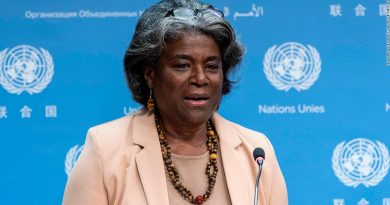Is Qatar ready to host the FIFA World Cup?
Fans and football teams have started arriving in Qatar, as the Middle Eastern country prepares to host the 2022 FIFA World Cup, which will start on Sunday.
More than a million fans are expected to visit the Gulf country during the monthlong tournament.
Qatar, a country of less than three million people, was awarded the right to host the global 32-team competition in 2010.
Since then the country has undergone many changes to prepare for the showpiece event.
So, is Qatar ready to host world football’s flagship tournament?
Stadiums
The tournament will be played across eight stadiums. Qatar, the first country in the Middle East to host the tournament, directly employed more than 26,000 people to prepare the stadiums for the November and December games.
Seven new state-of-the-art stadiums with advanced open-air cooling technology have been built from scratch for the event.
The last of the newly-built venues to be inaugurated was Lusail Stadium, which hosted a test match between Egyptian club team Zamalek and the Saudi club Al Ahli in September.
Lusail Stadium, with a capacity of 80,000 people, is the largest tournament venue for the 2022 World Cup and will host the final on December 18, as well as matches during each stage of the event.
The eighth – the 40,000-capacity Khalifa International Stadium – has undergone renovations and upgrades.
Accommodation
There have been concerns that the country may not have adequate accommodation for the expected influx of football fans during the tournament. But over the past 12 years, the organisers have built hotels, apartments, villas and infrastructure to prepare for the mega event.
Fans will have plenty of accommodation options for their stay during the tournament, Omar al-Jaber, executive director of the housing department at the Supreme Committee for Delivery and Legacy (SC), told Al Jazeera.
“We have enough accommodation. People can still come and enjoy the tournament. And of course, they can choose what they are looking for from the accommodations [available],” al-Jaber said.
The organisers have also allowed residents to put their houses and rooms up for rent in an attempt to ease accommodation concerns.
Fans will also be staying on cruise ships and at sites in the desert. At least three floating hotels have docked in Doha with a combined capacity of about 10,000 beds.
Authorities have also said some fans will be able to stay in 1,000 modern tents erected on a man-made island north of Doha.
Organisers are introducing more than 500 shuttle flights a day allowing fans to stay in cities in neighbouring countries like Dubai in the United Arab Emirates, Muscat in Oman, and Jeddah in Saudi Arabia to alleviate concerns over a potential accommodation shortage in Qatar.
Transport
In the run-up to the championship, Qatar invested heavily in upgrading its transport network.
The host country built a metro rail system, which was launched in 2019, constructed major highways and inaugurated a tram system in advance of the games.
For holders of a Hayya card – a fan ID that allows ticket-holders entry into Qatar and the stadiums – public transport will be free between November 10 and December 23.
The 2022 tournament will be geographically the most compact World Cup in history, with all eight stadiums within a 55km (34 miles) radius of Doha. Fans will be able to attend more than one game a day if they wish to.
Five of the eight FIFA World Cup stadiums are directly connected to the metro railway, with the remainder connected by a combination of metro and shuttle bus services.
A fleet of 4,000 buses, including 700 electric vehicles, will be used to shuttle passengers between transport hubs and stadiums. According to organisers, some 50,000 passengers a day are expected to use buses during the World Cup,
Security
Qatar is deploying tens of thousands of security personnel for the World Cup. It has signed security cooperation deals with several countries.
Turkey has provided police officers and Pakistan has sent troops, which will operate under Qatari command. Several participating countries are also sending delegations of police.
Last month, Qatar security forces, along with partners, carried out a five-day security exercise across the country. The drills were aimed at testing the readiness and responsiveness of the emergency services, The Peninsula daily reported.
According to the tournament’s security committee, the exercises, dubbed Watan (which translates to nation in Arabic), involved 32,000 government security personnel and 17,000 from the private security sector.




